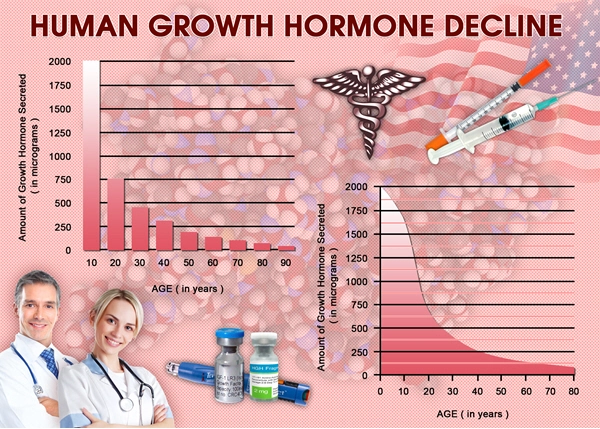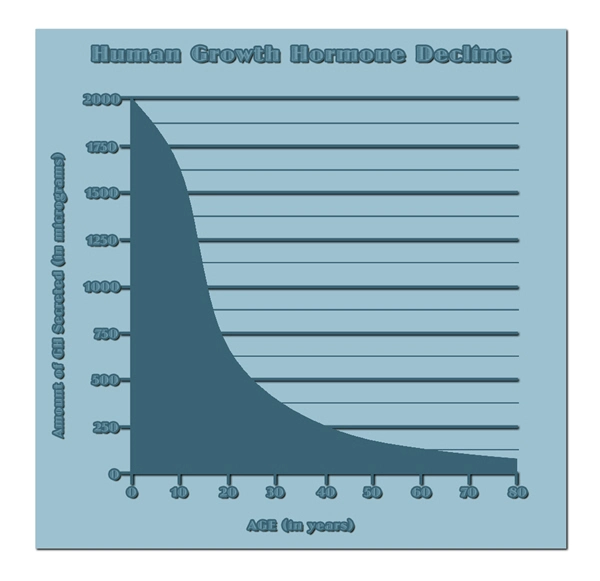Introduction
Tamoxifen, a widely used selective estrogen receptor modulator (SERM), has been pivotal in the management of hormone receptor-positive breast cancer. While traditionally associated with female patients, the use of tamoxifen in American males with breast cancer is gaining attention. Understanding the genomic predictors of tamoxifen response can significantly enhance treatment outcomes. This article delves into the genetic factors influencing tamoxifen efficacy, tailored specifically for American male patients.
The Role of Tamoxifen in Male Breast Cancer
Breast cancer, though less common in men than in women, presents unique challenges and treatment considerations. Tamoxifen has emerged as a cornerstone therapy for male patients with hormone receptor-positive breast cancer. Its mechanism involves blocking the effects of estrogen, a hormone that can promote the growth of breast cancer cells. However, the response to tamoxifen can vary widely among individuals, necessitating a deeper understanding of genetic predictors.
Genetic Variants and Tamoxifen Metabolism
The metabolism of tamoxifen is primarily mediated by the cytochrome P450 enzyme system, particularly CYP2D6. Genetic polymorphisms in the CYP2D6 gene can significantly influence the conversion of tamoxifen to its active metabolites, endoxifen and 4-hydroxytamoxifen. American males with reduced or non-functional CYP2D6 alleles may experience diminished therapeutic benefits from tamoxifen due to lower levels of these active metabolites.
Clinical Implications of CYP2D6 Genotyping
CYP2D6 genotyping can provide valuable insights into an individual's capacity to metabolize tamoxifen effectively. For American male patients, identifying those with poor metabolizer status can guide clinicians in adjusting dosages or considering alternative therapies. Studies have shown that patients with CYP2D6 poor metabolizer genotypes may have a higher risk of recurrence, underscoring the importance of personalized medicine in optimizing treatment outcomes.
Beyond CYP2D6: Other Genetic Markers
While CYP2D6 is a critical determinant of tamoxifen metabolism, other genetic markers also play a role in treatment response. Variations in genes such as CYP3A4 and CYP3A5, which contribute to the metabolism of tamoxifen, can influence drug efficacy. Additionally, polymorphisms in the estrogen receptor gene (ESR1) may affect the sensitivity of cancer cells to tamoxifen, further complicating the genetic landscape of treatment response.
Integrating Genomic Data into Clinical Practice
The integration of genomic data into clinical practice is essential for tailoring tamoxifen therapy to individual American male patients. Pharmacogenomic testing can identify genetic variants that impact drug metabolism and response, enabling clinicians to make informed decisions about treatment strategies. This approach not only enhances the efficacy of tamoxifen but also minimizes the risk of adverse effects, improving overall patient outcomes.
Challenges and Future Directions
Despite the potential benefits of genomic testing, several challenges remain. The cost and accessibility of pharmacogenomic testing can be prohibitive for some patients, and the interpretation of genetic data requires specialized expertise. Future research should focus on developing cost-effective testing methods and improving the integration of genomic data into electronic health records. Additionally, ongoing studies are needed to identify new genetic markers that may influence tamoxifen response, further refining personalized treatment approaches.
Conclusion
Understanding the genomic predictors of tamoxifen response is crucial for optimizing treatment outcomes in American males with breast cancer. By leveraging genetic information, clinicians can tailor tamoxifen therapy to individual patients, enhancing efficacy and reducing the risk of recurrence. As research in this field continues to evolve, the integration of genomic data into clinical practice will play an increasingly important role in the management of male breast cancer.
References
1. Johnson, M. D., et al. "Pharmacogenomics of tamoxifen therapy." Clinical Pharmacology & Therapeutics, vol. 95, no. 2, 2014, pp. 208-215.
2. Goetz, M. P., et al. "CYP2D6 metabolism and patient outcome in the Austrian Breast and Colorectal Cancer Study Group trial (ABCSG) 8." Clinical Cancer Research, vol. 19, no. 2, 2013, pp. 500-507.
3. Rae, J. M., et al. "CYP2D6 and UGT2B7 genotype and risk of recurrence in tamoxifen-treated breast cancer patients." Journal of the National Cancer Institute, vol. 104, no. 6, 2012, pp. 453-460.

- Understanding Tamoxifen's Role in Combatting Hormonal Cancers in American Men [Last Updated On: February 16th, 2025] [Originally Added On: February 16th, 2025]
- Tamoxifen: A Vital Tool in Treating and Preventing Breast Cancer in American Men [Last Updated On: February 18th, 2025] [Originally Added On: February 18th, 2025]
- Tamoxifen's Role in Reducing Breast Cancer Recurrence in American Males [Last Updated On: February 27th, 2025] [Originally Added On: February 27th, 2025]
- The Multifaceted Implications of Tamoxifen Therapy: An In-depth Review of Side Effects [Last Updated On: March 2nd, 2025] [Originally Added On: March 2nd, 2025]
- Comprehensive Overview of Tamoxifen: Applications in Breast Cancer Treatment, Preventive Therapy, and Beyond [Last Updated On: March 3rd, 2025] [Originally Added On: March 3rd, 2025]
- Exploring Tamoxifen's Role and Risks in Men's Health Management [Last Updated On: March 4th, 2025] [Originally Added On: March 4th, 2025]
- Exploring Tamoxifen's Role in Managing Men's Hormone-Driven Health Conditions [Last Updated On: March 5th, 2025] [Originally Added On: March 5th, 2025]
- Exploring Tamoxifen's Role in Treating Hormone-Sensitive Cancers in Adolescent Males [Last Updated On: March 6th, 2025] [Originally Added On: March 6th, 2025]
- Tamoxifen in Male Breast Cancer: Mechanism, Benefits, and Considerations for Treatment Success [Last Updated On: March 7th, 2025] [Originally Added On: March 7th, 2025]
- Unraveling Tamoxifen Resistance in Breast Cancer Therapy: Mechanisms, Impacts, and Strategies [Last Updated On: March 8th, 2025] [Originally Added On: March 8th, 2025]
- Optimizing Men's Health: Tamoxifen's Role in Pre and Post-Surgical Interventions [Last Updated On: March 9th, 2025] [Originally Added On: March 9th, 2025]
- Optimizing Tamoxifen Dosage for Effective Breast Cancer Treatment in American Males [Last Updated On: March 12th, 2025] [Originally Added On: March 12th, 2025]
- Tamoxifen's Potential in Treating Pediatric Cancers: Focus on Young American Males [Last Updated On: March 13th, 2025] [Originally Added On: March 13th, 2025]
- Unveiling the Risks: A Comprehensive Look at Long-Term Tamoxifen Use in American Males [Last Updated On: March 15th, 2025] [Originally Added On: March 15th, 2025]
- Tamoxifen Therapy in Males: Managing Drug Interactions and Enhancing Efficacy [Last Updated On: March 17th, 2025] [Originally Added On: March 17th, 2025]
- Tamoxifen in Men: Uses, Effects, and Management for American Males [Last Updated On: March 18th, 2025] [Originally Added On: March 18th, 2025]
- Tamoxifen's Role in Reducing Breast Cancer Mortality in American Males [Last Updated On: March 18th, 2025] [Originally Added On: March 18th, 2025]
- Tamoxifen's Efficacy and Impact on American Males with Breast Cancer [Last Updated On: March 19th, 2025] [Originally Added On: March 19th, 2025]
- Tamoxifen for Men: Benefits, Risks, and Breast Cancer Treatment Decisions [Last Updated On: March 19th, 2025] [Originally Added On: March 19th, 2025]
- Tamoxifen's Role in Inhibiting Cancer Growth: Insights for American Males [Last Updated On: March 20th, 2025] [Originally Added On: March 20th, 2025]
- Tamoxifen: A Vital Guide for American Men with Breast Cancer [Last Updated On: March 20th, 2025] [Originally Added On: March 20th, 2025]
- Tamoxifen's Role in Leukemia: Mechanisms, Clinical Evidence, and Future Prospects [Last Updated On: March 20th, 2025] [Originally Added On: March 20th, 2025]
- Tamoxifen's Role in Male Health: Managing Gynecomastia, Infertility, and Cardiovascular Risks [Last Updated On: March 21st, 2025] [Originally Added On: March 21st, 2025]
- Managing Tamoxifen Side Effects in American Men: Strategies and Support [Last Updated On: March 21st, 2025] [Originally Added On: March 21st, 2025]
- Tamoxifen's Efficacy in Treating Hormone-Sensitive Cancers in American Males [Last Updated On: March 21st, 2025] [Originally Added On: March 21st, 2025]
- Tamoxifen's Role in Treating Male Breast Cancer: Insights and Management Strategies [Last Updated On: March 22nd, 2025] [Originally Added On: March 22nd, 2025]
- Tamoxifen in American Males: Benefits, Risks, and Management Strategies for Breast Cancer [Last Updated On: March 22nd, 2025] [Originally Added On: March 22nd, 2025]
- Tamoxifen in American Males: Benefits, Applications, and Considerations in Hormone Therapy [Last Updated On: March 22nd, 2025] [Originally Added On: March 22nd, 2025]
- Tamoxifen's Expanding Role in Male Breast Cancer Treatment and Research in the U.S. [Last Updated On: March 22nd, 2025] [Originally Added On: March 22nd, 2025]
- Tamoxifen in Recurrent Cancer: Benefits, Challenges, and Monitoring for American Males [Last Updated On: March 22nd, 2025] [Originally Added On: March 22nd, 2025]
- Tamoxifen: A Vital Treatment for Men with Hormone Receptor-Positive Breast Cancer [Last Updated On: March 22nd, 2025] [Originally Added On: March 22nd, 2025]
- Tamoxifen's Role in Managing Estrogen Fluctuations in American Men [Last Updated On: March 23rd, 2025] [Originally Added On: March 23rd, 2025]
- Tamoxifen: Benefits and Myths for American Males with Breast Cancer [Last Updated On: March 23rd, 2025] [Originally Added On: March 23rd, 2025]
- Tamoxifen: A Vital Tool in Treating Male Breast Cancer in America [Last Updated On: March 24th, 2025] [Originally Added On: March 24th, 2025]
- Tamoxifen's Role in Treating and Preventing Male Breast Cancer in America [Last Updated On: March 24th, 2025] [Originally Added On: March 24th, 2025]
- Tamoxifen-Induced Depression in American Males: Mechanisms, Prevalence, and Management [Last Updated On: March 24th, 2025] [Originally Added On: March 24th, 2025]
- Personalizing Tamoxifen Therapy for American Men: Optimizing Outcomes and Quality of Life [Last Updated On: March 24th, 2025] [Originally Added On: March 24th, 2025]
- Overcoming Tamoxifen Resistance in American Males: Strategies and Insights [Last Updated On: March 24th, 2025] [Originally Added On: March 24th, 2025]
- Tamoxifen's Impact on Male Ovarian Function: Effects, Management, and Future Research [Last Updated On: March 24th, 2025] [Originally Added On: March 24th, 2025]
- Tamoxifen's Role in Enhancing Breast Cancer Cure Rates in American Males [Last Updated On: March 24th, 2025] [Originally Added On: March 24th, 2025]
- Exploring Tamoxifen Alternatives for Male Breast Cancer Treatment in American Males [Last Updated On: March 24th, 2025] [Originally Added On: March 24th, 2025]
- Tamoxifen Therapy in American Males: Strategies for Preserving Bone Health [Last Updated On: March 24th, 2025] [Originally Added On: March 24th, 2025]
- Tamoxifen: Revolutionizing Hormone Therapy for American Males with Cancer [Last Updated On: March 25th, 2025] [Originally Added On: March 25th, 2025]
- Tamoxifen: A Vital Treatment for Advanced Breast Cancer in American Men [Last Updated On: March 25th, 2025] [Originally Added On: March 25th, 2025]
- Tamoxifen's Role in Molecular Oncology for American Males: Benefits and Considerations [Last Updated On: March 25th, 2025] [Originally Added On: March 25th, 2025]
- Tamoxifen: A Promising Treatment for Rare Cancers in American Males [Last Updated On: March 25th, 2025] [Originally Added On: March 25th, 2025]
- Tamoxifen Drug Interactions: Critical Considerations for Male Breast Cancer Treatment [Last Updated On: March 26th, 2025] [Originally Added On: March 26th, 2025]
- Tamoxifen Therapy for American Males: Managing Early-Stage Breast Cancer [Last Updated On: March 26th, 2025] [Originally Added On: March 26th, 2025]
- Tamoxifen's Role in Treating and Preventing Male Breast Cancer: A Comprehensive Guide [Last Updated On: March 26th, 2025] [Originally Added On: March 26th, 2025]
- Tamoxifen: Reducing Tumor Size and Preventing Recurrence in American Males with Breast Cancer [Last Updated On: March 26th, 2025] [Originally Added On: March 26th, 2025]
- Tamoxifen's Role in Treating Endocrine Cancers in American Males: A New Frontier [Last Updated On: March 26th, 2025] [Originally Added On: March 26th, 2025]
- Tamoxifen: Hope and Treatment for American Men with Cancer [Last Updated On: March 26th, 2025] [Originally Added On: March 26th, 2025]
- Tamoxifen's Role in Revolutionizing Male Breast Cancer Treatment in America [Last Updated On: March 26th, 2025] [Originally Added On: March 26th, 2025]
- Tamoxifen's Long-Term Effects on Women's Health: Insights for American Males [Last Updated On: March 26th, 2025] [Originally Added On: March 26th, 2025]
- Tamoxifen: Preventing High-Risk Breast Cancer in Men [Last Updated On: March 26th, 2025] [Originally Added On: March 26th, 2025]
- Tamoxifen Use and Cataract Risk in American Males: A Detailed Analysis [Last Updated On: March 27th, 2025] [Originally Added On: March 27th, 2025]
- Tamoxifen: Gold Standard for Male Breast Cancer Treatment in American Men [Last Updated On: March 27th, 2025] [Originally Added On: March 27th, 2025]
- Tamoxifen's Role in Treating Hormonal Cancers in American Males: Efficacy and Future Prospects [Last Updated On: March 28th, 2025] [Originally Added On: March 28th, 2025]
- Tamoxifen's Impact on Endocrine Function in Male Breast Cancer Patients [Last Updated On: March 28th, 2025] [Originally Added On: March 28th, 2025]
- Tamoxifen: A Promising Non-Surgical Treatment for Gynecomastia in American Males [Last Updated On: March 28th, 2025] [Originally Added On: March 28th, 2025]
- Tamoxifen in Male Breast Cancer: Benefits, Risks, and Long-Term Considerations [Last Updated On: March 29th, 2025] [Originally Added On: March 29th, 2025]
- Tamoxifen's Molecular Dynamics in Treating Male Breast Cancer in American Males [Last Updated On: March 29th, 2025] [Originally Added On: March 29th, 2025]
- Tamoxifen Therapy in American Men: Balancing Risks and Benefits in Advanced Cancer Treatment [Last Updated On: March 29th, 2025] [Originally Added On: March 29th, 2025]
- Tamoxifen's Role in Treating Male Breast Cancer: Efficacy and Considerations for American Men [Last Updated On: March 30th, 2025] [Originally Added On: March 30th, 2025]
- Tamoxifen: A New Hope for Male Infertility Treatment in American Men [Last Updated On: March 31st, 2025] [Originally Added On: March 31st, 2025]
- Tamoxifen: A Vital Tool in Treating and Preventing Male Breast Cancer [Last Updated On: April 1st, 2025] [Originally Added On: April 1st, 2025]
- Molecular Determinants of Tamoxifen Therapy in American Males with Breast Cancer [Last Updated On: April 2nd, 2025] [Originally Added On: April 2nd, 2025]
- Tamoxifen Toxicity in American Males: Mechanisms, Risks, and Management Strategies [Last Updated On: April 2nd, 2025] [Originally Added On: April 2nd, 2025]
- Tamoxifen's Cardiovascular Impact on American Males: Benefits and Risks [Last Updated On: April 6th, 2025] [Originally Added On: April 6th, 2025]
- Tamoxifen's Role in Preventing and Treating Male Breast Cancer: A Comprehensive Overview [Last Updated On: April 6th, 2025] [Originally Added On: April 6th, 2025]
- Optimizing Tamoxifen Efficacy in American Males with Breast Cancer Using Adjunct Therapies [Last Updated On: April 7th, 2025] [Originally Added On: April 7th, 2025]
- Tamoxifen: Key Insights into Its Role in Male Breast Cancer Management [Last Updated On: April 7th, 2025] [Originally Added On: April 7th, 2025]
- Tamoxifen Therapy in American Males: Efficacy, Side Effects, and Prevention in Breast Cancer [Last Updated On: April 8th, 2025] [Originally Added On: April 8th, 2025]
- Tamoxifen's Efficacy in Advanced Male Breast Cancer: U.S. Case Studies [Last Updated On: April 9th, 2025] [Originally Added On: April 9th, 2025]
- Tamoxifen's Role in Chemoprevention for American Males: Efficacy, Risks, and Research [Last Updated On: April 9th, 2025] [Originally Added On: April 9th, 2025]
- Tamoxifen's Dual Impact on Endometrial Cancer in Male and Female Patients [Last Updated On: April 10th, 2025] [Originally Added On: April 10th, 2025]
- Tamoxifen's Untapped Potential: Benefits for Men's Health Beyond Breast Cancer [Last Updated On: April 11th, 2025] [Originally Added On: April 11th, 2025]
- Tamoxifen: A Vital Tool in Managing Breast Cancer in American Men [Last Updated On: April 12th, 2025] [Originally Added On: April 12th, 2025]
- Tamoxifen in American Men: Experiences, Side Effects, and Long-Term Health Impacts [Last Updated On: April 12th, 2025] [Originally Added On: April 12th, 2025]
- Tamoxifen's Role in Preventing Cancer in American Men: A Comprehensive Overview [Last Updated On: April 12th, 2025] [Originally Added On: April 12th, 2025]



List of USA state clinics - click a flag below for blood testing clinics.
Word Count: 638



















































